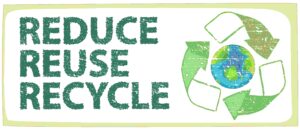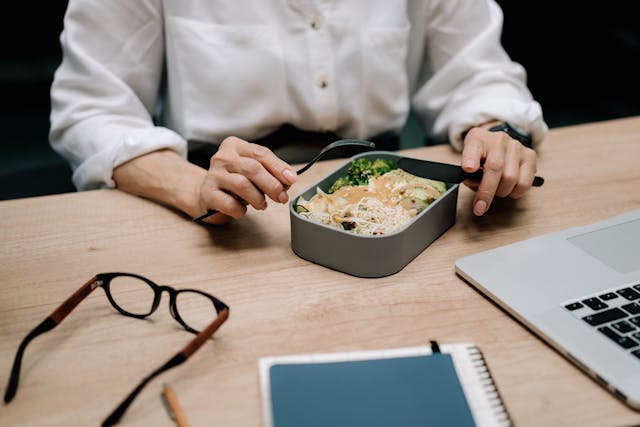Start Your Zero-Waste Journey with Confidence.
Get answers to all your beginner questions and start making an impact today.
Quick Navigation
Introduction to Zero Waste
What is Zero Waste?
Exploring Zero Waste in Simple Terms
Zero waste is all about creating a world where waste doesn’t exist. Imagine a lifestyle where everything we use has a purpose—even after we’re done with it! The goal of zero waste is to design and manage products so that everything can be reused, recycled, or composted, keeping it out of landfills and oceans.
Why Does Zero Waste Matter for the Environment?
Traditional waste systems focus on disposal, which leads to overflowing landfills and pollution. Zero waste offers a solution by shifting towards a circular economy—where resources circulate through reusing and recycling instead of being tossed out. For example, instead of throwing away a glass jar, you might repurpose it for food storage. This mindset not only conserves resources but helps cut down greenhouse gas emissions, making it a win for the planet.
Simple Ways to Practice Zero Waste in Daily Life
Waste in Daily Life
- Reuse and Repurpose – Look for creative ways to reuse everyday items. A jar becomes storage; a torn shirt becomes cleaning cloths.
- Choose Reusables – From bags to water bottles, choosing items designed for multiple uses can reduce waste dramatically.
- Support Eco-Friendly Products – Opt for items made from recycled materials or designed to be composted at the end of their life.
Key Takeaway
Zero waste isn’t about perfection; it’s about making conscious choices that add up to big change. Starting small with zero waste principles can make a real difference for the environment, your budget, and your community. Every step, no matter how small, helps build a future where waste is a thing of the past.
What are the Benefits of Zero Waste Living?
Switching to a zero waste lifestyle isn’t just about cutting down on trash; it’s a way to create positive change in almost every part of your life—from your health and finances to the environment and community around you. Let’s explore some of the amazing benefits that come from embracing zero waste living and how it can make a real impact!
1. Environmental Benefits
One of the most rewarding aspects of zero waste living is knowing you’re helping the planet! By reducing waste, you’re not only cutting down on landfill overflow but also reducing harmful methane emissions. For example, when San Francisco set a zero waste goal, they managed to divert over 80% of waste away from landfills through recycling and composting. Imagine if more cities followed suit—the environmental impact would be huge!
2. Healthier Choices
Zero waste often nudges you toward healthier choices naturally. It’s all about saying goodbye to packaged, processed foods and hello to fresh, wholesome options. By opting for unpackaged produce or bulk-bin items, you skip the preservatives and chemicals found in packaged goods. Many people report feeling better and having more energy after making these small changes. Think about grabbing a handful of fresh almonds from a bulk store instead of a plastic-wrapped snack bar—you’re doing something good for yourself and the planet!
3. Financial Savings
Believe it or not, zero waste living can be a big money-saver. Reusable items may cost a bit upfront, but they more than pay off in the long run. Take reusable water bottles, for instance—by skipping single-use plastic bottles, a family can save around $200 a year. And buying in bulk?

It can cut costs on things like grains, nuts, and spices, while also reducing packaging waste. Zero waste living proves that sometimes less really is more—especially for your wallet!
4. Sense of Accomplishment

Living a zero waste lifestyle brings a unique sense of accomplishment that can be incredibly fulfilling. Every reusable item, every composted veggie scrap, and every plastic item you skip over for a greener choice is a step toward a cleaner, healthier planet. And it feels good to know your choices are making a difference! Many people find that zero waste actions, like DIY projects or community clean-ups, add purpose and joy to their day-to-day lives.
5. Building Community
One of the unexpected but amazing perks of zero waste living is the connection it builds with others. Zero waste inspires community initiatives, like local repair cafes, swap events, and farmers’ markets where people can buy local, package-free products. Groups like “Buy Nothing” encourage neighbors to share items they no longer need instead of buying new, which not only reduces waste but also brings people together. When a whole community joins in, it makes zero waste feel like a movement you’re proud to be part of!
Going zero waste is more than just a lifestyle choice—it’s a way to make a meaningful impact while enjoying healthier, more connected, and more cost-effective living. Whether you’re picking up a reusable bottle or joining a community swap, every small step counts toward a brighter, more sustainable future. So why not jump in and start exploring the benefits of zero waste for yourself?
Is Zero Waste Possible?

Debunking Myths and Embracing Progress
The concept of zero waste often raises eyebrows and prompts the question: Is zero waste really possible? Many people assume that achieving a completely waste-free lifestyle is an unattainable goal. However, while perfection may be out of reach, significant progress toward reducing waste is not only possible but also impactful. Let’s explore common concerns and misconceptions surrounding zero waste living, and discover how small changes can lead to big results.
1. Zero Waste Means No Waste at All
One of the most prevalent myths is that zero waste means producing absolutely no waste. In reality, zero waste is about minimizing waste to the greatest extent possible. It’s a journey focused on reducing non-recyclable or non-compostable materials that end up in landfills.
For instance, individuals can start by making small changes, such as switching to reusable shopping bags and opting for bulk bins instead of packaged goods. Many people who adopt a zero waste lifestyle find that their trash output significantly decreases over time. For example, a family might go from filling a garbage bin every week to just a small jar of waste every month. This showcases that while they may not achieve “zero,” they are making substantial progress.
2. It’s Too Expensive
Another common concern is that adopting a zero waste lifestyle is prohibitively expensive. While some eco-friendly products may come with an upfront cost, many zero waste practices actually save money in the long run. By investing in reusable items like cloth napkins or stainless steel water bottles, individuals can reduce their reliance on single-use products.
For example, a household that switches from disposable paper towels to washable cloths can save hundreds of dollars annually. Over time, the savings from reduced purchases of disposable items can outweigh initial investments in reusable alternatives. This shift not only benefits the wallet but also contributes to a more sustainable environment.
3. Zero Waste is Inconvenient
Many believe that living a zero waste lifestyle requires significant effort and inconvenience. However, integrating sustainable practices into daily routines can be surprisingly simple. For instance, carrying a reusable bag or coffee cup becomes second nature after a few uses.

A busy professional might find that bringing their own lunch in reusable containers not only reduces waste but also saves money compared to buying takeout every day. This small change can lead to healthier eating habits and less environmental impact without sacrificing convenience. Once you establish these habits, they become part of your daily routine rather than an added burden.
4. It’s an All-or-Nothing Approach
Some people feel discouraged by the idea that they must fully commit to zero waste or not try at all. In truth, zero waste is about progress rather than perfection. Every small step counts towards reducing waste.
For example, someone might start by committing to composting food scraps or avoiding plastic straws. These incremental changes contribute to a larger impact over time, showing that every effort matters, regardless of how small it seems. Celebrating these achievements can motivate you to continue making positive changes in your lifestyle.
5. You Need Access to Specialized Stores
A common misconception is that you must live near a zero-waste store to participate in this lifestyle. While these stores offer package-free goods, many zero-waste items can be found at local grocery stores or online.
Many people successfully shop for bulk grains and legumes at their regular supermarkets using their own containers, proving that accessibility doesn’t have to be a barrier to adopting zero waste practices. Even if you don’t have a dedicated zero-waste store nearby, you can still make mindful choices that align with zero waste principles.
Takeaways: Zero Waste is Achievable—Start Where You Are!
While achieving absolute zero waste may be unrealistic in our current society, significant progress is entirely possible and impactful. By debunking common myths and embracing the journey of reducing waste, individuals can contribute positively to the environment without feeling overwhelmed by perfectionism.
Every small change adds up, leading us closer to a more sustainable future for ourselves and generations to come. The essence of zero waste living lies in making conscious choices and striving for improvement, not aiming for an unattainable ideal. So take those first steps today—your journey toward sustainability starts now!

Getting Started with Zero Waste
Where Do I Start?
Where to Start with Zero Waste: Simple First Steps
Starting a zero waste lifestyle might sound overwhelming at first, but the good news is it’s all about progress, not perfection. The journey begins with small, simple changes that make a big difference over time. By focusing on easy-to-implement habits, you’ll be on your way to reducing waste and living more sustainably without feeling stressed. Let’s dive into actionable steps you can take to kick off your zero waste journey today!…… Read More
What is the Complete Roadmap to Zero Waste Living?
The Complete Roadmap of Zero Waste Living: Your Step-by-Step Guide
If you’re here, it means you’ve already taken a crucial first step that many haven’t—you’re growing more aware of the impact your choices have on the planet. It’s a small but powerful shift, one that can lead to significant change. Zero waste living isn’t about perfection; it’s about progress, mindfulness, and creating a lifestyle that benefits not just you, but the environment and future generations.………… Read More
What Zero-Waste Items Do I Need to Buy First?
Essential Zero-Waste Items to Buy First: A Beginner’s Checklist
Imagine a world where your trash bin doesn’t fill up every week—where your choices actively reduce pollution and make a tangible impact on the planet. Sound impossible? Not with the right tools and mindset…. Read More
Practical Zero Waste Tips & Swaps
What Are the Easiest Zero-Waste Swaps to Make?
10 Easiest Zero-Waste Swaps to Transform Your Daily Routine
Making the transition to zero waste doesn’t require drastic changes. Start with these 10 easy swaps: replace plastic bags with reusable totes, switch to a stainless steel water bottle, use bamboo toothbrushes instead of plastic ones, opt for cloth napkins over paper, choose bar soap instead of liquid in plastic bottles, and more. These small changes can collectively make a big difference in reducing your waste footprint…………….. Read More
How Do I Reduce Plastic Waste?
How to Reduce Plastic Waste: Effective Strategies for a Greener Life
Embarking on a zero waste journey can seem daunting, but it’s a rewarding path that not only benefits the environment but also enhances your lifestyle. This comprehensive guide will take you from beginner to advanced zero waste practices, providing a clear pathway for you to follow. Let’s dive into the roadmap of zero waste living!…………… Read More
How Can I Reduce Packaging Waste?
Essential Zero-Waste Items to Buy First: A Beginner’s Checklist
Transitioning to a zero-waste lifestyle begins with acquiring a few essential items that replace common single-use products. Start with reusable bags for shopping, glass jars for bulk food storage, and stainless steel or bamboo containers for leftovers. Investing in a quality water bottle and a set of metal or bamboo utensils can also make a significant impact on reducing daily waste.………….. Read More
How Do I Reduce My Carbon Footprint?
Reducing Your Carbon Footprint: Beyond Waste Reduction
Transitioning to a zero-waste lifestyle begins with acquiring a few essential items that replace common single-use products. Start with reusable bags for shopping, glass jars for bulk food storage, and stainless steel or bamboo containers for leftovers. Investing in a quality water bottle and a set of metal or bamboo utensils can also make a significant impact on reducing daily waste.………….. Read More
Integrating Zero Waste into Daily Life
How to Get Others on Board with the Zero-Waste Lifestyle?
How to Encourage Others to Embrace a Zero-Waste Lifestyle
Embarking on a zero waste journey can feel overwhelming, but it doesn’t have to be. The key is to start small with manageable changes that can lead to significant impact over time. Here are some actionable steps to help you reduce waste in daily life………………. Read More
How Can I Convince My Family/Friends to Go Zero-Waste?
Convincing Family and Friends to Go Zero-Waste: Effective Tips
Embarking on a zero waste journey can seem daunting, but it’s a rewarding path that not only benefits the environment but also enhances your lifestyle. This comprehensive guide will take you from beginner to advanced zero waste practices, providing a clear pathway for you to follow. Let’s dive into the roadmap of zero waste living!…………… Read More
How Do I Reduce Waste at Work or While Traveling?
Reducing Waste at Work and While Traveling: Practical Tips
Transitioning to a zero-waste lifestyle begins with acquiring a few essential items that replace common single-use products. Start with reusable bags for shopping, glass jars for bulk food storage, and stainless steel or bamboo containers for leftovers. Investing in a quality water bottle and a set of metal or bamboo utensils can also make a significant impact on reducing daily waste.………….. Read More
What Can Someone Do if They Live in an Apartment and Want to Go Zero-Waste and Minimalist?
Zero Waste and Minimalism in Small Spaces: Apartment Living Tips
Transitioning to a zero-waste lifestyle begins with acquiring a few essential items that replace common single-use products. Start with reusable bags for shopping, glass jars for bulk food storage, and stainless steel or bamboo containers for leftovers. Investing in a quality water bottle and a set of metal or bamboo utensils can also make a significant impact on reducing daily waste.………….. Read More
Overcoming Challenges in Zero Waste Living
What Are the Challenges of Zero-Waste Living?
Challenges of Zero-Waste Living and How to Overcome Them
Embarking on a zero waste journey can feel overwhelming, but it doesn’t have to be. The key is to start small with manageable changes that can lead to significant impact over time. Here are some actionable steps to help you reduce waste in daily life………………. Read More
Is It Expensive to Live Zero Waste?
Is Living Zero Waste Expensive? Debunking the Myths
Embarking on a zero waste journey can seem daunting, but it’s a rewarding path that not only benefits the environment but also enhances your lifestyle. This comprehensive guide will take you from beginner to advanced zero waste practices, providing a clear pathway for you to follow. Let’s dive into the roadmap of zero waste living!…………… Read More
What Should I Do with Non-Recyclable Waste?
Managing Non-Recyclable Waste: Sustainable Solutions
Transitioning to a zero-waste lifestyle begins with acquiring a few essential items that replace common single-use products. Start with reusable bags for shopping, glass jars for bulk food storage, and stainless steel or bamboo containers for leftovers. Investing in a quality water bottle and a set of metal or bamboo utensils can also make a significant impact on reducing daily waste.………….. Read More
What’s Surprisingly Easy/Difficult About Living Zero Waste?
The Surprising Ease and Challenges of Zero-Waste Living
Transitioning to a zero-waste lifestyle begins with acquiring a few essential items that replace common single-use products. Start with reusable bags for shopping, glass jars for bulk food storage, and stainless steel or bamboo containers for leftovers. Investing in a quality water bottle and a set of metal or bamboo utensils can also make a significant impact on reducing daily waste.………….. Read More
What If I Don’t Have Access to Recycling Facilities?
Zero Waste Without Recycling Facilities: What You Can Do
Transitioning to a zero-waste lifestyle begins with acquiring a few essential items that replace common single-use products. Start with reusable bags for shopping, glass jars for bulk food storage, and stainless steel or bamboo containers for leftovers. Investing in a quality water bottle and a set of metal or bamboo utensils can also make a significant impact on reducing daily waste.………….. Read More
Stay Connected and Get Inspired!
Join our newsletter for the latest zero-waste tips, DIY ideas, and sustainable product recommendations right to your inbox. Together, let’s make small changes that matter.


